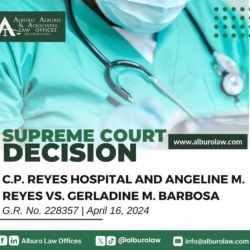Know Your Rights according to the Diversity and Inclusion Program under Executive Order No. 51, December 22, 2023
On December 22, 2023, President Ferdinand Marcos Jr. issued Executive Order No. 51 reinforcing the diversity and inclusion program, reconstituting the inter-agency committee on diversity and inclusion, and creating the special committee on Lesbian, Gay, Bisexual, Transgender, Queer, Intersex, and Asexual (LGBTQIA+) affairs.












